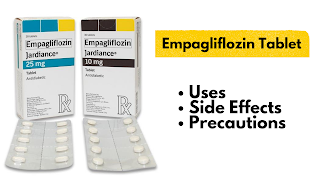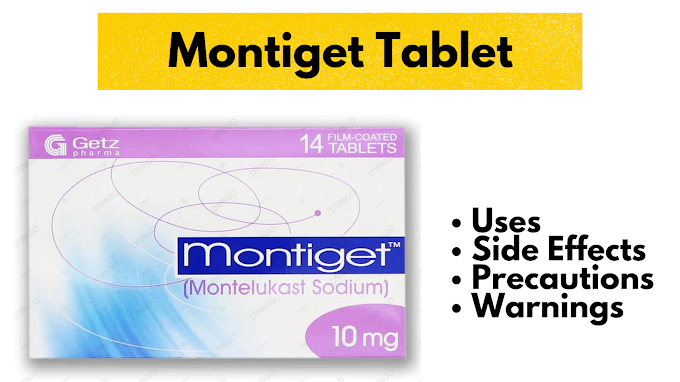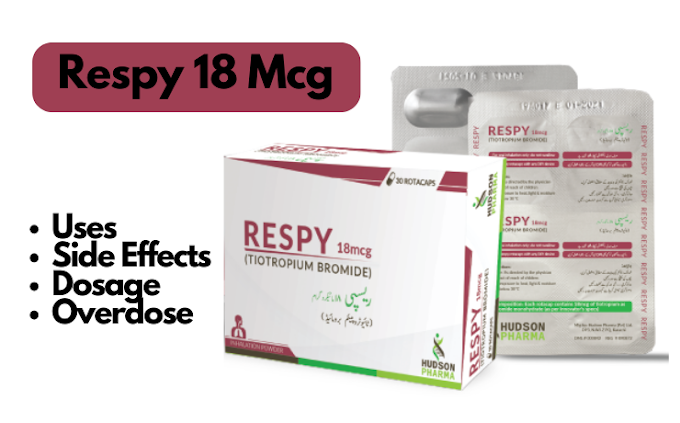Empagliflozin Tablet Uses, Side Effects & Precautions
Empagliflozin Uses:
A drug called empagliflozin is used to treat type 2 diabetes. In type 2 diabetes, the body either produces insufficient insulin or the insulin it does produce does not function properly. Hyperglycemia, or high blood sugar, may result from this.
Empagliflozin Side Effects:
There may be frequent urination, woozyness, or lightheadedness. Inform your doctor or chemist as soon as possible if any of these side effects persist or get worse.
When getting out of a sitting or lying position, take it slowly to lessen the chance of feeling lightheaded and dizzy.
Keep in mind that your doctor has prescribed this medication because they believe it will benefit you more than it will harm you. Many users of this medication report no significant side effects.
If you experience any severe side effects, including indications of a urinary tract infection (such as burning, painful, frequent, or urgent urination, pink or bloody urine), notify your doctor right away.
If you experience any extremely serious side effects, such as unusual tiredness, nausea or vomiting, stomach or abdominal pain, or difficulty breathing, seek medical attention right away.
The vagina or the penis may develop a new yeast infection as a result of this medication. In people with type 2 diabetes, it may also result in a rare but severe bacterial infection in the genital/anal region called Fournier's gangrene. Inform your doctor as soon as possible if you experience any symptoms of a yeast infection in the vagina, such as unusual vaginal discharge, burning, itching, or odour, or in the penis, such as redness, itching, swelling, or unusual discharge. However, if you experience any discomfort, redness, or swelling in the genital or anal region, along with a fever or a general feeling of malaise, seek medical attention right away.
You may experience dehydration as a result of this medication. Serious kidney damage may result from this. Consume plenty of liquids to avoid becoming dehydrated. If you are having trouble staying hydrated or are losing fluid (perhaps as a result of vomiting, diarrhoea, or intense perspiration), let your doctor or chemist know right away. Tell your doctor right away if you experience any other dehydration-related symptoms, such as decreased urination, unusually dry mouth or thirst, a rapid heartbeat, or fainting, lightheadedness, or dizziness.
Empagliflozin usually does not result in low blood sugar (hypoglycemia) if you are taking it for diabetes. Low blood sugar can happen if you take this medication along with other diabetes medications, eat insufficient calories, or engage in unusually strenuous exercise. Whether the dosage of your other diabetes medication needs to be lowered should be discussed with your doctor or chemist. Low blood sugar can cause sudden sweating, trembling, a quick heartbeat, hunger, blurred vision, dizziness, or tingling in the hands or feet, among other symptoms. To treat low blood sugar, it is a good habit to carry glucose tablets or gel. If you don't have access to these safe sources of glucose, quickly raise your blood sugar levels by consuming fruit juice or regular soda, or by eating a quick source of sugar like table sugar, honey, or candy. Inform your doctor as soon as possible about the occurrence and the use of this product. Eat regularly and avoid skipping meals to help prevent low blood sugar. To find out what to do if you miss a meal, speak to your doctor or chemist.
Hyperglycemia, also known as high blood sugar, causes symptoms like increased urination, thirst, confusion, drowsiness, flushing, rapid breathing, and the odour of fruit on one's breath. Inform your doctor right away if you experience any of these symptoms. Your diabetes medications may need to be changed by your doctor.
Rarely will this medication cause a very serious allergic reaction. However, if you experience any serious allergic reaction symptoms, such as a rash, itching or swelling (especially of the face, tongue, or throat), severe dizziness, or difficulty breathing, seek medical attention right away.
Empagliflozin Precautions:
Tell your doctor or chemist if you are allergic to empagliflozin or if you have any other allergies before taking it. Inactive ingredients in this product have the potential to trigger allergic reactions or other issues. To learn more, speak with your chemist.
Inform your doctor or chemist about your medical history before taking this medication, especially if it includes any of the following conditions: dehydration, alcohol use or abuse, low blood pressure, high cholesterol, or a history of vaginal or genital yeast infections.
If you have diabetes, extremely low or high blood sugar levels can cause blurred vision, lightheadedness, or sleepiness. Until you are certain that you can perform such activities safely, avoid driving, operating machinery, or engaging in any other activity that calls for alertness or sharp vision. While taking this medication, try to avoid alcohol as it can increase your risk of low blood sugar and a high ketone level.
When your body is under stress (from a fever, infection, injury, or surgery, for example), controlling your blood sugar levels may be more difficult if you have diabetes. Additionally, if you are taking this medication and eating less or not at all as a result of these conditions or any illness, this could result in a high ketone level. Consult your doctor because this might necessitate modifying your medication regimen, treatment strategy, or blood sugar or ketone testing.
Inform your surgeon or dentist about all the products you use, including prescription, over-the-counter, and herbal medications.
While taking this medication, children may be more susceptible to low blood sugar.
The adverse effects of this medication, particularly dehydration, kidney issues, and dizziness/fainting (usually when standing), may be more severe in older adults.
This medication should only be taken during pregnancy if absolutely necessary. Describe the advantages and disadvantages to your doctor.
Diabetes can develop during pregnancy or get worse. With your doctor, go over a plan for controlling your blood sugar during pregnancy. During your pregnancy, your doctor may alter your diabetes treatment (including insulin and dietary changes).
It is unclear whether this medication enters breast milk. Before breastfeeding, speak with your doctor.







